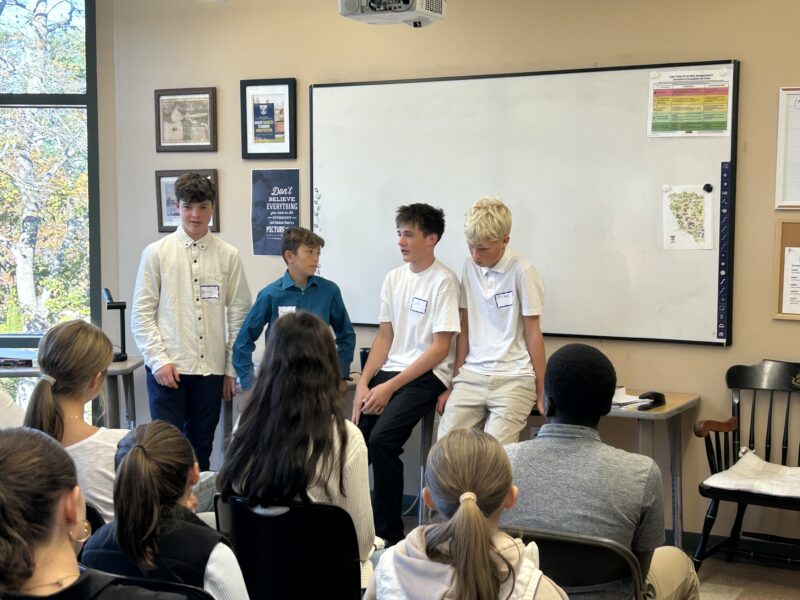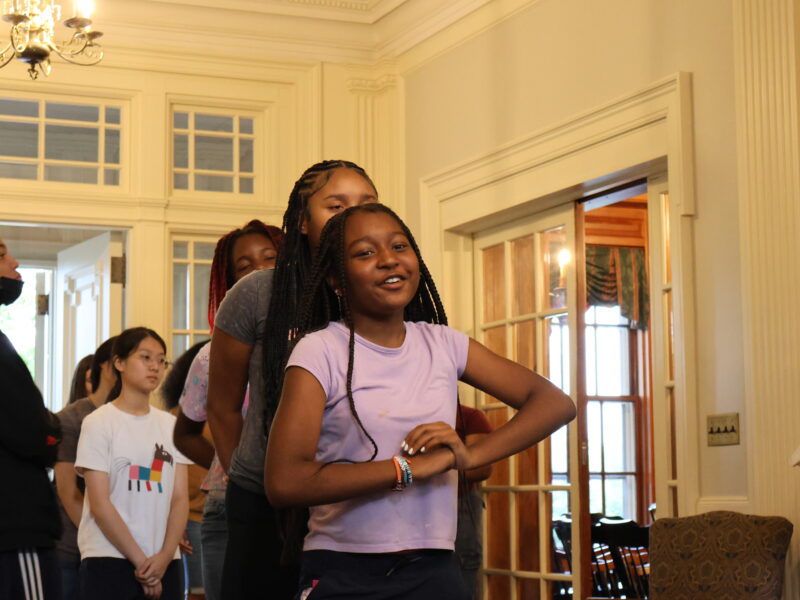
My last post – Why Should My/Any School Consider the Discovery Process – presents 10 reasons, most in the form of solutions to specific problems common to many schools.
This post presents the benefits, both apparent and hidden.
Starting boldly with the apparent, the Discovery Process has proven to consistently deliver five discernible benefits to fully participating schools:
- Students feel safe and cared for with a sense of connection to school and one another.
- They exhibit better coping skills in day-to-day interactions with both peers and adults.
- A synergistic rapport between younger and older students.
- Advancements in learning due to positive learning attitudes and sharper concentration.
- Enriched teachers due to the impact of the Hyde Discovery Process in their own lives.
Those are major outcomes and we are committed – we call it “All-In” – to helping any and every school attain them.
That said, our deepest drive to do this work is probably fueled by the hidden or unexpected benefits we have seen visit our participating schools. Here are five such benefits.
1. Immunity to Anxiety. In her landmark 2021 book The Awakened Brain, Columbia University psychologist Dr. Lisa Miller refers to what she calls the “questing brain,” a mindset that regards life as a journey of conscience and purpose. She postulates that the concept of immunity, one currently front-and-center due to the Pandemic, is not limited to physical illnesses. Her extensive research demonstrates that the questing brain can also assist immunity to anxiety and depression. Whereas many SEL programs might claim to curb anxiety after it surfaces, an effective Discovery Process program can help counter it before it takes root.
2. Safety is necessary but not sufficient. One of the first things we did when we began developing the Discovery Process was a competitive scan of SEL providers. This revealed a prevalent anti-bullying emphasis and a preoccupation with safety. To be sure, the Discovery Process believes that safety is critical. However, schools shouldn’t have to brag about it. Safety ought to be an assumed expectation. It’s a means to an end and not an end in itself. Hence, by not having to worry about bullying or safety, you can move on to more inspirational things.
3. Inspiration. Even if an SEL program manages to make bullying absent, it does not necessarily follow that an inspiring esprit de corps will be present. Rather than start with what to do about bullying, the Discovery Process asks (and answers) the more holistic question: What to do about inspiration?
4. Everybody Gets to Do Everything… and Learns More.
Angela Duckworth, CEO of Character Lab, writes of the ever-present “trade-off that parents and educators negotiate between sampling and specialization, between exploring new stuff you know nothing about and getting really good at what is already familiar.” Although specialization may currently be the order of the day in our classrooms and on our playing fields, we concur with Duckworth’s assessment: “Early in life, when time is on your side but you know almost nothing, it’s better to favor exploration.”
5. The Best Possible You/Us.
Many contemporary SEL programs are focused on anti-bullying or Diversity, Equity, and Inclusion (DEI) curricula. We support that work. We also differentiate our program with our primary focus on unique potential and helping kids become the best possible versions of themselves. While the Hyde Institute applauds any and all school efforts to eliminate bullying and integrate the aims of DEI, we also proudly note that we began doing this work decades before the terms SEL, anti-bullying, or DEI first appeared on the educational landscape.
Finally, if forced to identify the single word that most commonly surfaces whenever I converse with anyone about SEL, that word would be “bullying.” I’ll conclude this post with the words of a principal of one of our Discovery Process schools: “We used to have a lot of fights here. Today, we don’t even talk about bullying. It just doesn’t happen here anymore.” Focus on stampting out bullying and you may well get more of it. Focus on inspiring your students and it tends to fade into the rear view.
Onward, Malcolm


